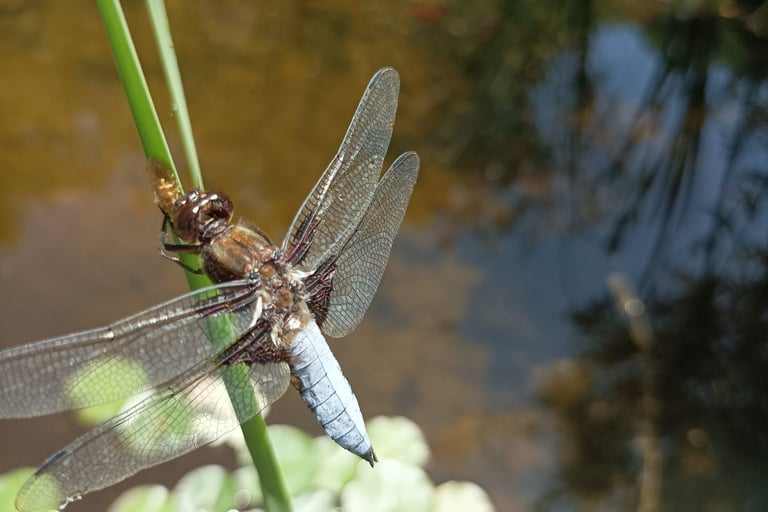
They Come and they Go
As the seasons change.
FLORA AND FAUNA AND THE FOREST WORLDSEASONS
8/28/20243 min read
I decided to do the ironing yesterday morning before the heat of the day grew too much. I folded a tablecloth and began my task. But as the iron began to smooth out the creases a repugnant smell filled the air. I knew exactly what it was. Hidden between the folds I discovered a fine looking insect : the leptoglossus occidentalis, or as it is commonly known, the pine seed eating beetle. This is a kind of stink bug (punaise, ) which in France is known as the 'punaise Americaine,' because it came to Europe on a shipment of timber from the mountains of California and Nevada. I have already written in a blog about them. Unfortunately, as autumn approaches, they have started to return from their summer amongst the pines . Soon, there will be many more seeking to hibernate indoors. If we fail to be vigilant, we could soon find them hiding everywhere: in lampshades; between sheets; nestling in the folds of curtains, or congregating in great number in our attic. They , and not least their odious ,sweet smell as they come under threat, are definitely unwelcome.
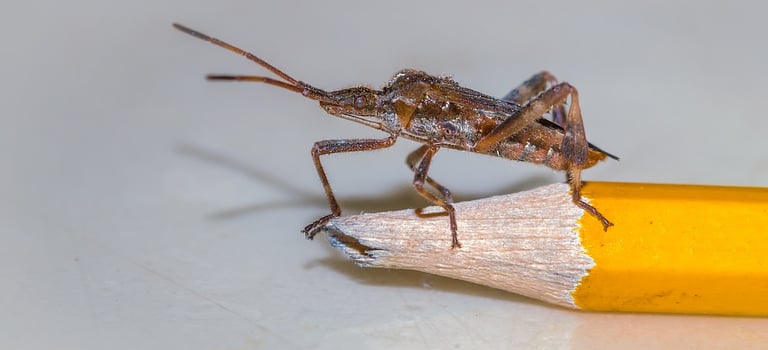

As the days begin to shorten there is more change in the air. The cicadas, who have filled our summer days with pleasant incessant chatter, are growing quieter. They are beginning to die, after only five or six weeks of life above ground. Although they are more often heard than seen, we are beginning to stumble across one or two dead bodies: abandoned lives. They seem somewhat ugly and beautiful at the same time with their bulging eyes and diaphanous wings.
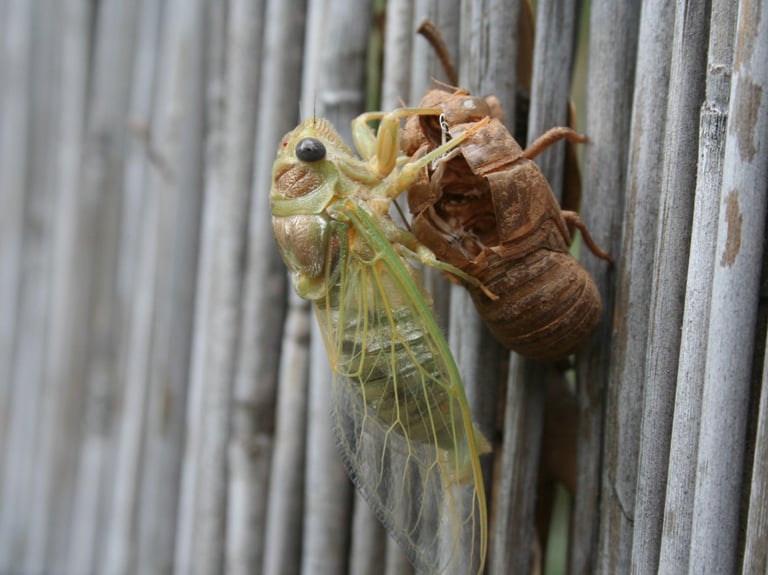

The fully fledged cicada only has about 5 or 6 weeks of life in which to find a mate, and for the female to lay her eggs. Up to 400 eggs are laid amongst the branches and twigs. These will quickly hatch and burrow their way underground. There the grubs will live in burrows for around 5 years, feeding on sap from tree roots, before, as nymphs, they finally emerge into the light. This seems such a sad reversal. But , for all the brevity of its life above ground, the male cicada seems happy enough as it sings merrily from the trees, hoping to attract its mate. ("Happy are the cicadas lives, for they are born with voiceless wives." !! )
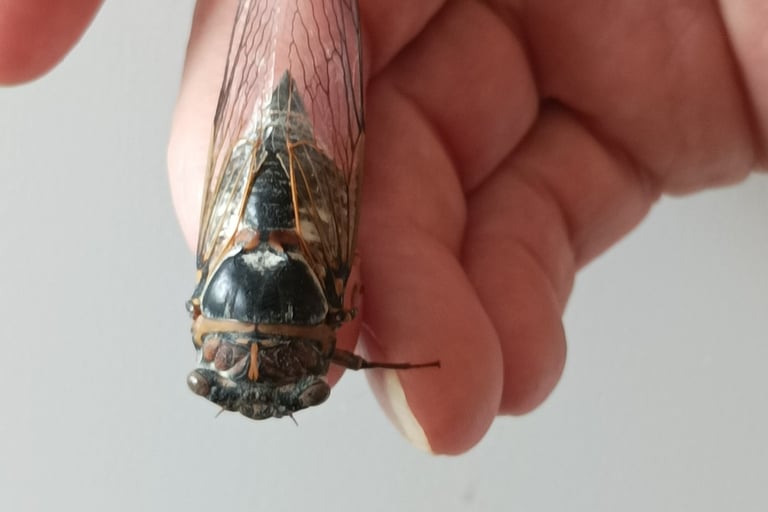

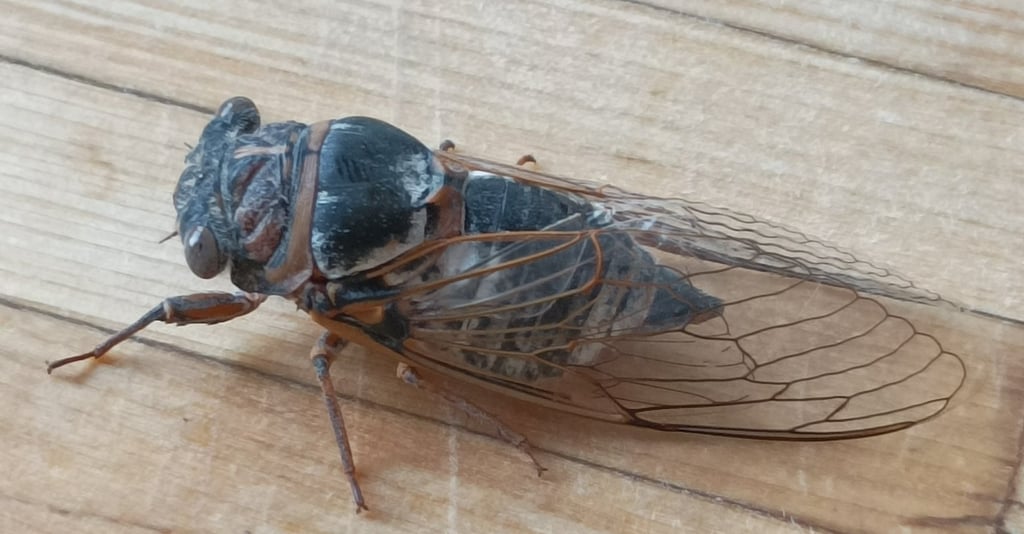

But whatever some insects seem to be indicating, summer is definitely not yet over . Butterflies may be scarcer now, and also bees, but wasps and hornets still abound, and dragonflies flock to hunt over the swimming pool. Yesterday we were visited by little Alia, our neighbour's granddaughter, who had found a dragon fly nymph. With the help of her parents she carefully placed it in our pond. And so the cycle of insect life at Domaine des Rochers continues.
